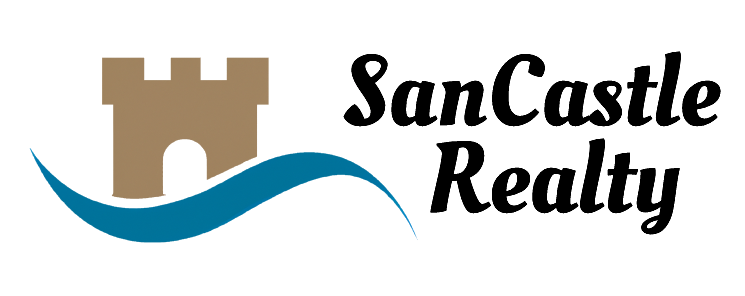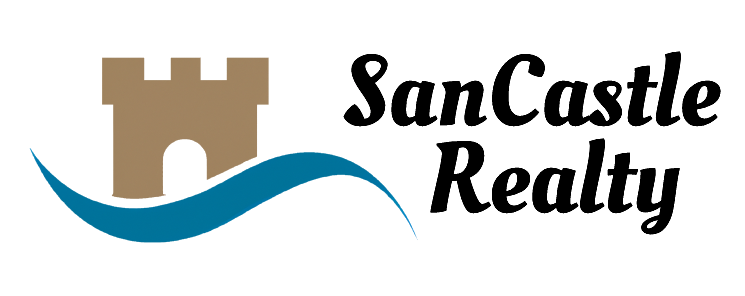sancastle realty's Blog
Our Blog Articles

What the Media Isn’t Telling You About the Real Estate Market — And Why It Matters
As we head into the summer of 2025, a quiet storm is brewing beneath the surface of the real estate market—and it’s not something you’re likely to hear about on cable news. While media headlines stay focused on fluff or political drama, key economic indicators are flashing warning signs. If you’re a homeowner, buyer, or investor, it’s time to read between the lines.
Here’s what’s really happening.
📉 Private Job Growth Has Slowed to a Trickle
In April, U.S. private employers added just 62,000 jobs, the lowest number since mid-2024. That’s far below expectations—and a signal that businesses are bracing for economic uncertainty. Many companies are delaying hiring due to fears about rising costs, interest rates, and global instability. Fewer jobs mean less consumer confidence, which ripples directly into the housing market.
📉 Mortgage Demand Is Dropping Again
Despite mortgage rates remaining fairly steady around 6.89%, buyer demand dropped another 4% in the last week of April, according to the Mortgage Bankers Association. Why? Would-be homebuyers are increasingly cautious about the broader economy—and they have reason to be.
Credit card debt and delinquencies are at all-time highs. Homeowners insurance, HOA dues, and property taxes are all rising. Even if home prices are down slightly from their 2023 peaks, affordability remains a major issue for the average buyer.
🏛️ The Tariff Squeeze: Short-Term Pain, Long-Term Questions
One of the biggest underreported drivers of today’s uncertainty? Tariffs.
The return of aggressive trade tariffs—particularly those proposed by the Trump administration against major trading partners—has led to immediate consequences:
Import costs have surged, causing a wave of price increases across everything from building materials to electronics.
Companies are slowing hiring and capital investment as they wait to see how global trade tensions play out.
Global supply chains are adjusting, and some nations—like China—are responding by dumping U.S. bonds and tightening control of resources.
This has triggered ripple effects in the bond and stock markets—and it’s feeding into consumer anxiety around big purchases like homes.
🔍 But here’s what’s important: if and when new trade agreements are reached, the outlook could shift dramatically.
Improved trade deals may bring:
Lower material costs, especially for construction and manufacturing.
Renewed business confidence, which could revive hiring and wage growth.
Stabilized mortgage rates, helping affordability rebound.
In short, while tariffs are weighing heavily on the economy right now, any resolution could act as a tailwind for both the real estate market and the broader economy—but only if handled with strategic clarity and cooperation.
📉 Treasury & Bond Market Signals Are Getting Worse
The U.S. Treasury unexpectedly increased its borrowing estimate by $391 billion for Q2 2025. Meanwhile, bond yields are rising, but not because of a strong economy—instead, foreign governments like China are dumping U.S. bonds, contributing to the dollar’s decline. These shifts often precede financial turbulence, especially when they happen alongside stock market losses.
🏠 What Does All This Mean for Real Estate?
This isn’t just doom-and-gloom—it’s about timing and preparation.
Many economists believe we are entering the second wave of a correction that began in mid-2023. In some parts of the country, home values have already dropped 15–30% from their peak. But here’s the twist: the true impact of slower job growth, rising delinquencies, and economic tightening may not fully hit the housing market until mid to late summer 2025.
And most people won’t be ready for it.
✅ How You Can Prepare
If you’re a buyer:
Be patient. More inventory and price reductions are likely coming.
Get pre-approved now—rates could rise further if inflation kicks in.
If you’re a seller:
Don’t overprice. Homes are still selling, but only when priced right.
Consider selling sooner rather than later if you’ve been on the fence.
If you’re an investor:
This could be the opportunity you’ve been waiting for.
Learn about tax lien investing, distressed property deals, and off-market opportunities before they go mainstream.
💬 Final Thoughts
The mainstream media might not be sounding the alarm, but the numbers don’t lie. The housing market is at a crossroads—and those who stay informed will be in a position to thrive, not just survive.
At Sancastle Realty, we’re here to help you navigate these shifting waters with real data, real strategy, and real results.
➡️ Need personalized guidance or want to know what your home is worth today?
Contact us here or call (386) 433-3507 to schedule a consultation.


